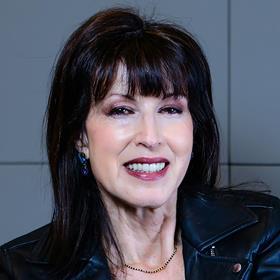Whilst it will be many months before the effects of the pandemic on the real estate sector become clearer, the forecasting around the future of the office continues unabated.

I was therefore pleased to hear industry veteran Nick Leslau, speaking in a recent webinar, dismiss as ridiculous all the predictions being made about the future of the office. His comments about the castration of landlords by the inability to collect rent also caught the headlines! This reminded me of the BPF Conference many years ago when Leslau stood up to tell a shocked audience that the viagra the quoted property sector needed was disclosure. He certainly has a way with soundbites.
As we prepare to exit lockdown, surveys indicate that swathes of the work force want to continue to work from home. Some of the larger tech companies have announced that working from home will become permanent. Whether this is due to concern for their staff, reluctance to be responsible for absorbing the workforce back into crowded offices or to cut costs remains to be seen.
Clearly, while many people are keen to return to the office, property owners and employers have to ensure that suitable safety measures are in place before reopening and ideally appropriate legal advice should be sought. Operating a workplace in the midst of a deadly pandemic presents new, and complicated, challenges.
As my employment colleagues tell me, risk assessments and policy statements need to be prepared to cover issues such as how to minimise the risk of infection within the workplace, how to identify and protect staff who may be vulnerable or shielding, and how to respond if you become aware that a member of staff has contracted the virus.
Employers owe a duty of care to employees to provide a safe system of work and failure to discharge that duty can lead to civil claims or, in extreme circumstances, criminal prosecution. There is also the difficulty of putting in place protective technology and systems balanced against privacy and GDPR issues.
With all the talk of working from home being the panacea, it was good to hear the perceptive comments made by Seaforth Land Founder and CEO Tyler Goodwin chairing an online webinar this week. He pointed to the difficulties of building business culture remotely. In a learning culture, you don’t benefit from observing your colleagues if you are working remotely and as a result ‘the future generation of leaders are losing out’, he said.

With social distancing measures in place the percentage of the London office workforce that can be accommodated is substantially reduced. And there is the additional challenge of how we are to travel to work. This week a Centre for London panel ‘Keeping the distance: Can London’s transport network adapt and survive?’ looked at the issues of transport.
Chaired by Centre for London’s Rob Whitehead, it featured Alex Williams of Transport for London, Patricia Brown of Central and Dipti Patel of Ealing Council. The statistics quoted by Centre for London indicated that people plan to use public transport less even when the current restrictions are removed. Williams, referencing TfL’s ‘broken business model’ said at present there are only 300,000 to 400,000 TfL journeys a day compared to the usual 4 million a day. In comparison there are 40,000 bike rides a day. Pat Brown pointed out that ‘the government and environmental campaigners have urged people to consider cycling and walking to avoid increasing pollution’. However, carmakers say that there is evidence in multiple countries of car sales being bolstered by a desire to avoid public transport.
The challenge is how can we keep the city moving commercially and not impair deliveries, buses, and taxis. She suggested that ‘we should embrace black cabs more than TfL seems to – not only are they vital for people with impaired mobility but you can put a bike in a back of a cab to facilitate longer commutes, for example’. This should be music to the ears of our black cab drivers.
One of the beneficiaries of the prolonged lockdown has been Thirdfort, a graduate of our MDR Lab incubator. Their web and mobile app combines document scanning and facial recognition technology with open banking to streamline the identity and source of funds checks that have to be carried out by lawyers dealing with property transactions. They tell me they have seen a 28% increase in new instructions from residential property lawyers compared with three weeks ago. ‘The market is more active than we expected this soon after re-opening. Some law firms are opening 2-3x as many files a day as they were in early May and the momentum appears to be picking up. No one knows how long lived this rally will last’, said co-founder Olly Thornton-Berry

Continuing on the technology theme, I was delighted to moderate this week’s ULI Europe webinar, ‘Confronting the Pandemic and Beyond - The Role of Technology in Managing Real Estate and Ensuring Health and Safety’ with an expert panel comprising Léan Doody, Digital Property and Cities Leader for Europe at Arup, David Nadge, Senior Innovation Manager, SIGNA Innovations and Andrew Schafer, Senior Vice President & Managing Director, International, Accruent.
The discussion focused on the role of digital technology in fostering better communication and management of real estate in the current crisis and in the ensuing ‘return to normal’ period. It is particularly noteworthy that currently we are using existing technology but the difference is that it is now being gratefully embraced by the real estate sector. The multifaceted discussion included the problem of balancing the use of technology such as thermal testing and facial recognition to protect the workforce and resistance from those concerned about data and privacy issues? Are the concerns about data generational with the younger generation seemingly less concerned about giving away personal information?
The jury seems to be out on that one so let me know what you think.
Susan Freeman is a partner at Mishcon de Reya
Related blogs by Susan Freeman:
- Propertyshe perspectives: our new reality, climate change and the Mipim editor’s dinner





























No comments yet